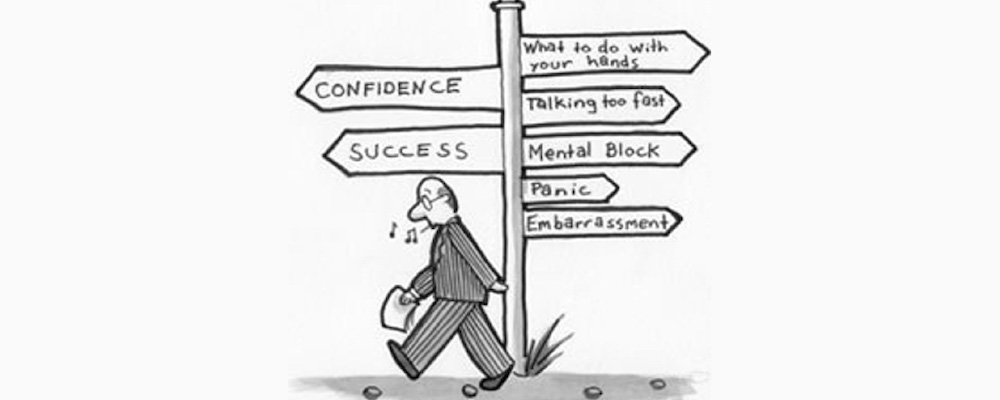
Why Presentation Nerves Aren’t All Bad!
No one likes giving presentations. It’s a well-known fact.
What if you mess up? What if you talk too fast? What if someone asks you a difficult question? WHAT IF YOU FORGET YOUR WORDS?
As many of you will have experienced, presentation nerves and anxiety are enough to send anyone over the edge. But what if I told you that presentation nerves aren’t all that bad?
1. Yerkes- Dodson Law:
As mentioned in our previous blog on ‘Stress in the Workplace’, arousal can, in fact, be good for our performance. If you’re worried about insufficient planning or forgetting your words, I can guarantee you that your pre-presentation anxiety will motivate
you to ensure that you have everything organised down to a T. Furthermore, it has also been found that the presence of others can enhance the performance of well-practised tasks; the arousal we experience as a result of being evaluated by others heightens our alertness, awareness and accuracy,
thus we are more likely to perform better under these circumstances. So what have you got to worry about!?
2. Nervousness Can Create Engagement:
According to the Harvard Business Review, people worry too much about presentation anxiety. Our audience will expect us to be nervous and it is completely natural to feel this way, so don’t beat yourself up over it! If we acknowledge the nerves we feel and we display a certain level of vulnerability to our audience, we can actually win them over. Audiences are made up of everyday people like you and me, so chances are, they can all relate to how you are feeling. I have viewed a number of presentations with incredibly anxious speakers and I felt nothing but empathy for them. So the next time you do a presentation, remember that your audience is rooting for you!
3. Blushing is a Good Thing!
There’s nothing worse than making a mistake in a presentation and turning a hot shade of red, right? Blushing is entirely embarrassing in itself, so why does it happen?
Blushing is an evolutionary adaptive in the sense that it serves to mitigate others negative reactions towards behaviours that otherwise might result in a loss of public esteem. When we believe that our public image has been damaged, blushing acts as a non-verbal apology as it conveys to others that we feel sorrow over our faults and inadequacies. So why is this good for us nervous presenters?
Marystead (1982) found that people who engage in embarrassment displays are evaluated more positively than those who do not; so the next time you fumble over your words and feel your face radiating heat, relax; your audience won’t think any less of you!
Author: Megan Lazenby, Online Marketing, Masterclass Training Ltd
As with all presentations, it is important to make sure that you are fully prepared and you have everything under control. Here are just a few links to some presentation tips and tricks!
Dealing with Public Speaking Nerves
Tips for Calming Nerves Before Giving a Speech
10 Tips for Presentation Confidence




